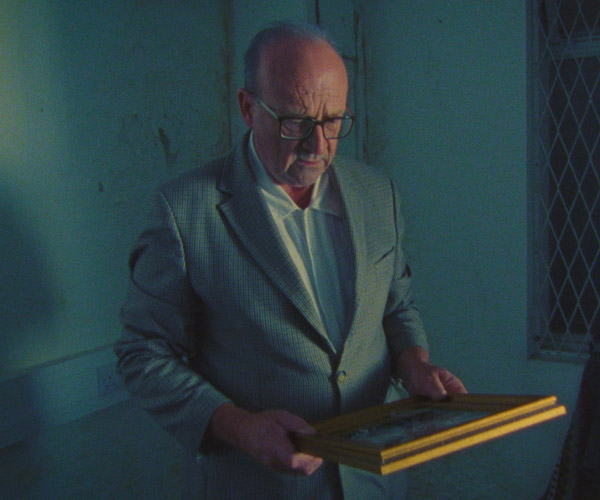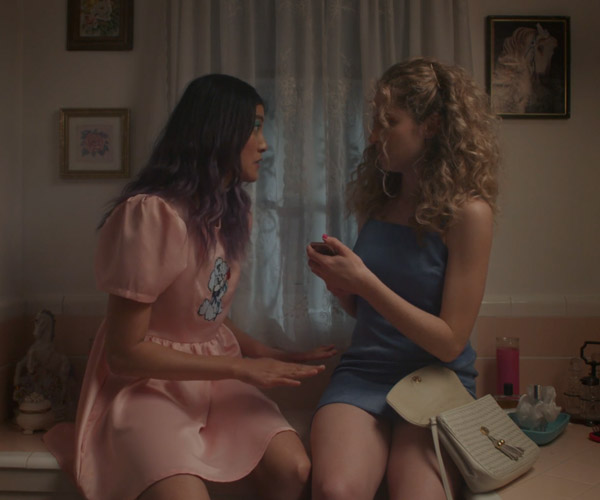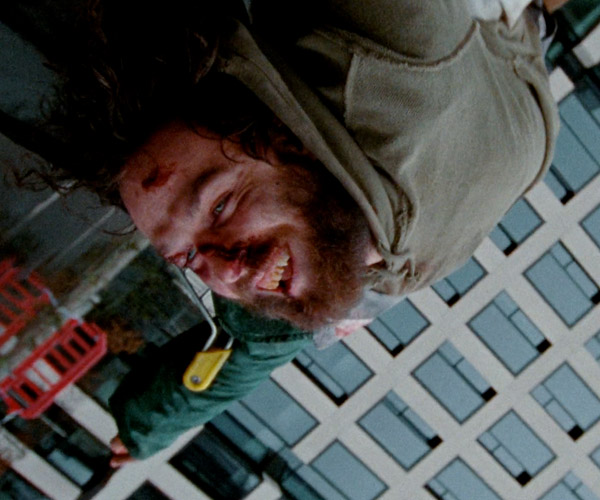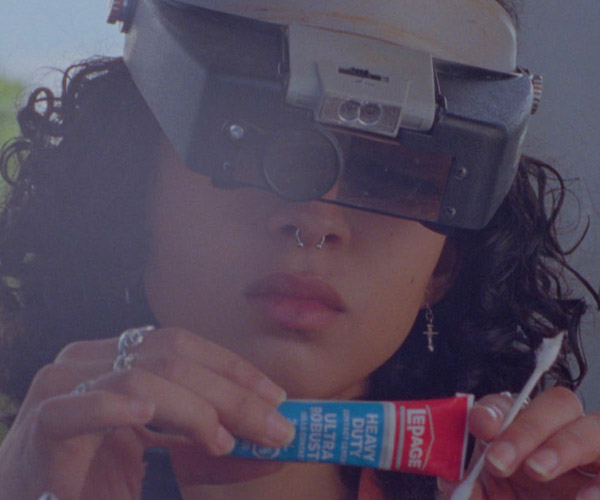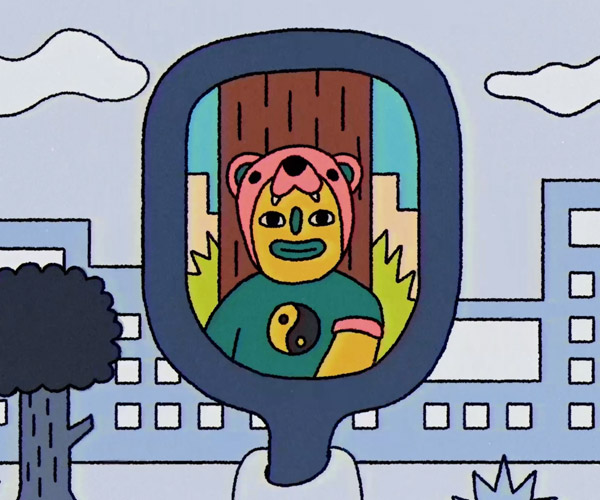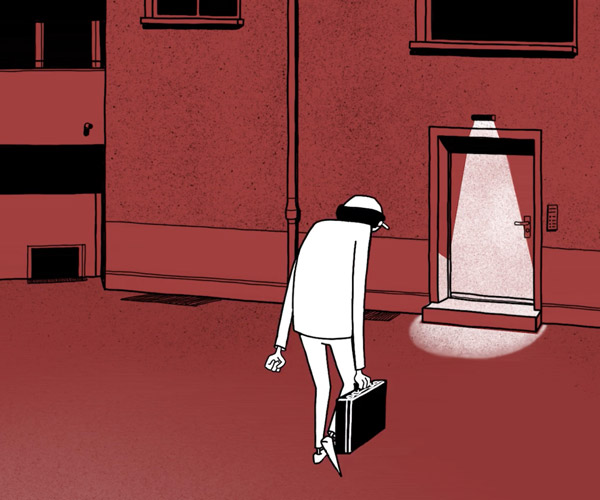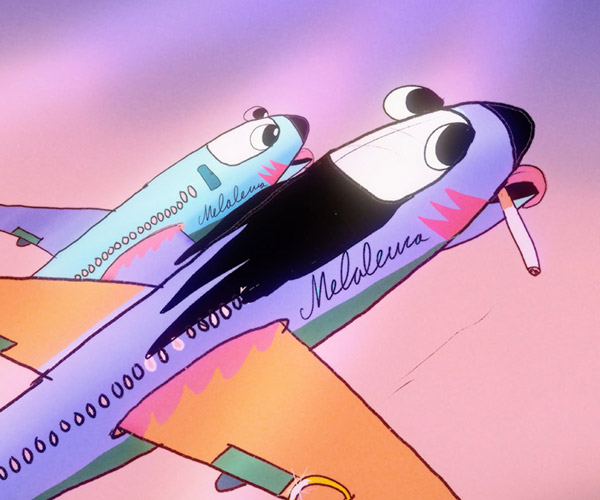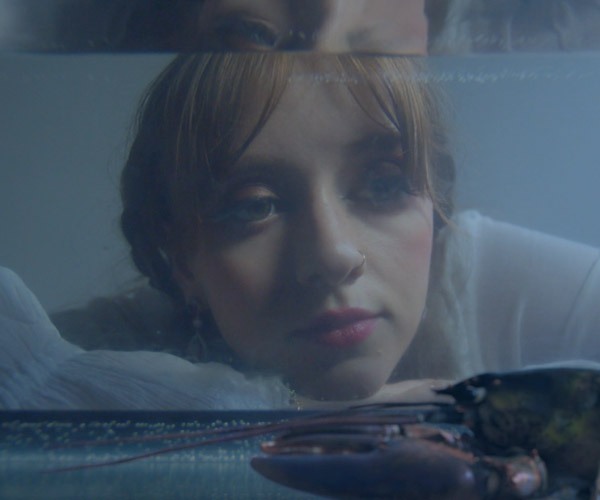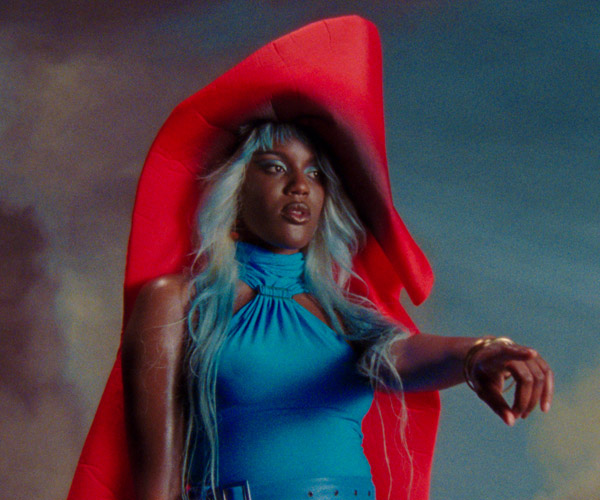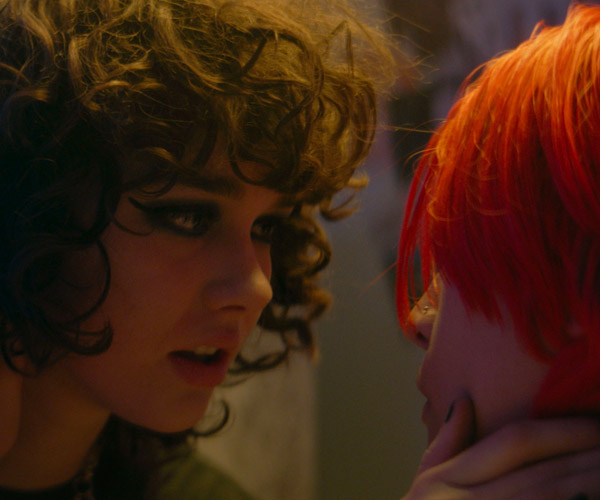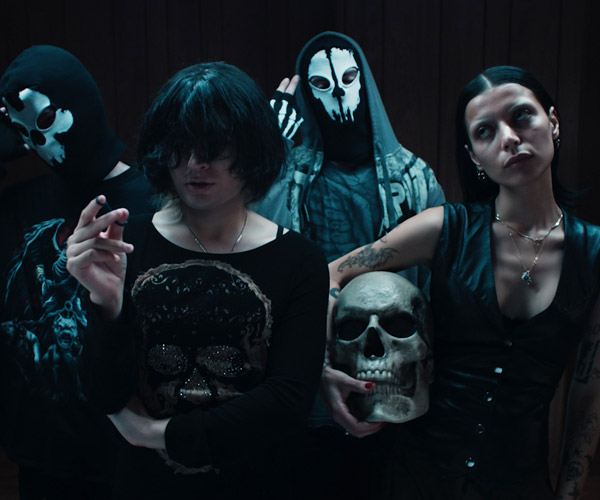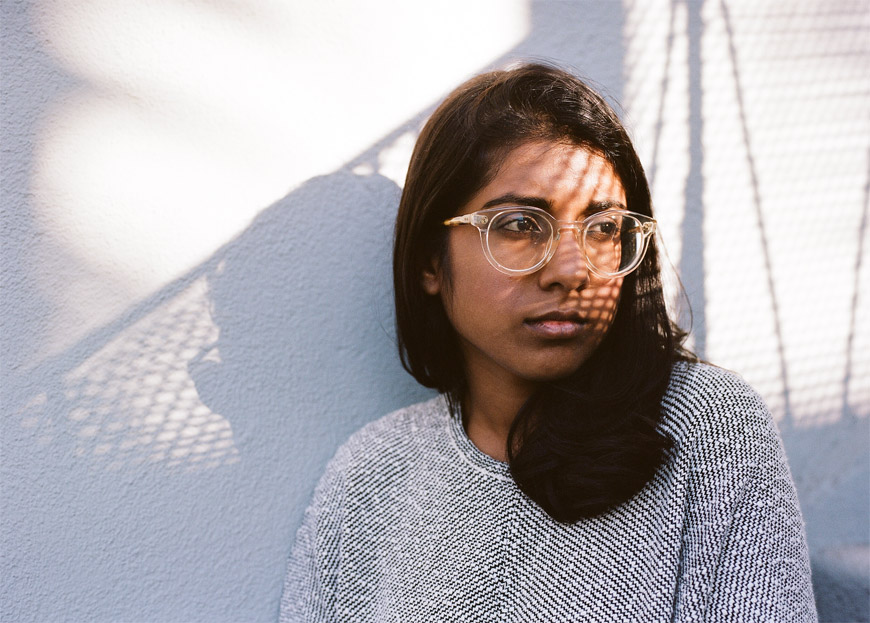
Writer/director Minhal Baig is turning heads all over the net, and Hollywood has noticed too. Her screenplay, Hala, which explores the life of a young Muslim American teenager, was included on the 2016 Black List—the annual survey of Hollywood’s best unproduced screenplays. Baig’s 14-minute proof of concept version of Hala was also awarded a Vimeo Staff Pick and featured by Short of the Week.
We had a chance to ask the young Yale-graduate some questions about her work, on the heels of releasing her short film, After Sophie.
After Sophie – film by Minhal Baig
Jeff Hamada: Can you paint a picture of where you are right now? What do you see, hear and smell?
Minhal Baig: I smell coffee. There’s a lot of people having meetings all around me. I hear conversations about financing independent films, the GOP and the weather in Whistler. I’m at a cafe in Studio City called Aeirloom. I work here sometimes in the mornings.
JH: You’ve moved back and forth between LA and Chicago way too many times. How has life as a transient affected you creatively?
MB: I have moved back and forth quite a lot. There are some big advantages. Every time I move, I carry less and less stuff. I don’t feel tied down to anywhere because I don’t have a lot of physical possessions. I prefer it that way. There is something about being able to pack up your entire life in a carry-on or a suitcase that’s really liberating. At the same time, I do miss having a place that feels like home. It’s a bummer not having a dedicated workspace. I want an office more than anything.
JH: Take me through the process of whittling down your belongings; what things have you decided are the most important to you?
MB: I’ve had to cut down on my possessions several times in the last five years since graduating college. My laptop, notebooks, my phone, and a week’s worth of clothes are my essentials. I’ve even stopped carting around makeup. I barely wear it. I really don’t have a sentimental attachment to things I’ve had for a very long time. I had all these notebooks from when I was working on my first feature and I recycled all of them. It’s better for the planet and my brain. I’m constantly shedding the emotional baggage of these projects (and there’s a lot of it.) I make something and I move on.
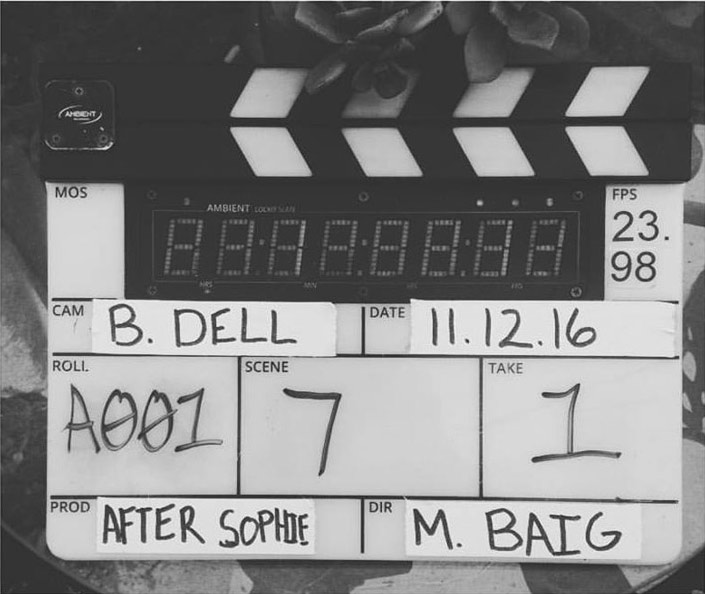
A slate from After Sophie. “I always take pictures of my slates now, as a way of remembering, because being in production is such a rarity, it has to be cherished.” – Minhal Baig
JH: Will LA ever feel like home for you?
MB: No — and there are a lot of reasons why. The rent here is very expensive for artists, and it’s really unfair that so many of us have to be here so often for work purposes. Because we can write from the comfort of our own homes, I would hope that filmmakers have greater freedom to live wherever they want, kind of like novelists do. Our work is collaborative so it’s a little harder but, at least for me, it makes the most sense to build my life the way I want it and have my work support that life. Television is a little different because you do have to work with other writers and most of them live here. I really believe in leading a low-rent life for maximum creative fulfillment and flexibility. I’m not interested in acquiring wealth or material success; if I can provide for my family, that would be enough.
Even though I gave up my apartment in Venice last fall, I’m still here a lot. My creative collaborators all live here and they make the city feel more like home than anywhere else. Lived experiences here do feel homogenous … there is a danger in being here too much and not having new life experiences that inform my work. I’m not just making stuff to make stuff. I won’t make something if I don’t have something to say. I’m still young and want to live life as fully as possible so that the work feels that way, too.
“Karma” – music video by Minhal Baig
JH: Are you from a family of storytellers? Were you born into this?
MB: Nobody in my family is a storyteller. My parents and extended family are Pakistani immigrants. They’re very practical people and chose careers that would allow them to provide for their families. I’m the black sheep in my family. It’s still a challenge for them to accept and understand what I’m doing with my life.
JH: Is it more important to you that your family understand what you do or accepts it?
MB: It’s more important that my family understand what I am trying to do than accept it. Acceptance is a much bigger leap. It’s enough that they empathize. They don’t necessarily have to agree with my point of view.
JH: Having watched both Hala and After Sophie, as well as your brilliant video for Brandyn Burnette, it seems like you’re finding a distinct voice — do you feel that way?
MB: It’s interesting that you say that, because people who have watched all of my work have said the same. I don’t set out to deliberately make my projects connected in any way, but they probably do feel like they were made by the same person. The more I work, the more confident I feel about the direction of the stories, the characters I’m drawn to and why. I have so many amazing influences but I’ve come to accept that I can’t be them, I can only be me, so might as well embrace that now.
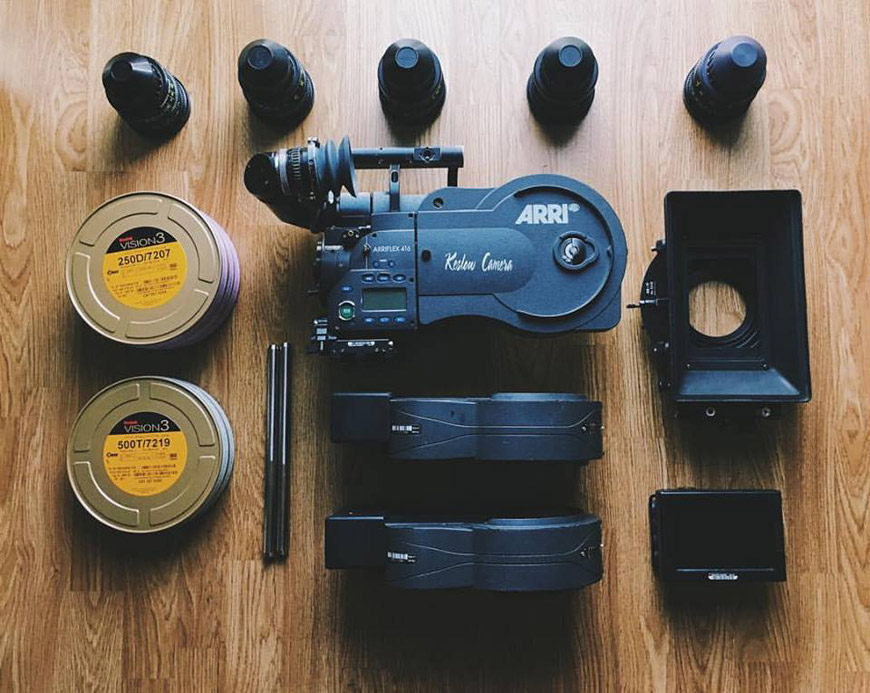
Camera and film stock from the Brandyn Burnette music video shoot. “Kodak donated two rolls of film to our production – it’s a joy to shoot on film, and I hope to do it again soon.” – Minhal Baig
JH: When you started to really get into watching films who were your favourite directors?
MB: I didn’t get to watch a lot of American films growing up until I was a little older, but the first film that really influenced me was Jurassic Park. That always surprises people. I loved Spielberg’s films growing up because they were just so accessible.
JH: I’m surprised how well Jurassic Park still holds up. Who’s influencing you these days?
MB: My favorite directors right now are a very, very different bunch – Andrea Arnold, Asghar Farhadi, Sofia Coppola, Xavier Dolan, Kelly Reichardt, Jonathan Glazer, Wong Kar-Wai, Steve McQueen, Hayao Miyazaki and Paul Thomas Anderson. There are also so many emerging directors whose work I love. Barry Jenkins’ Moonlight was my favorite film last year. Other directors who are amazing: Julia Ducournau, Babak Anvari, Chloe Robichaud.
JH: I read your one of your posts on Medium and was hoping you could talk a little bit about the idea of ‘genius’ and its crippling effect?
MB: I’m not sure that ‘genius’ is a real thing. I think it’s something that society has fabricated so that natural talent can be elevated over hard work. It’s a lot easier to say “I can’t do x or y because I just don’t have the talent for it,” as opposed to “I can’t do x or y because I don’t want to do the work required to get me there.” Genius is what we ascribe to people who have enormous talent in whatever they do, but we forget that it took work to get to be where they are. The idea of ‘genius’ diminishes the work that artists do to in-born talent. In Los Angeles, everyone is a ‘genius’ — the word is so overused in our business that it honestly doesn’t mean anything anymore. For artists just starting their career, seeing your heroes as ‘geniuses’ is crippling. Everyone started somewhere, after all.
Hala – a proof of concept for a feature film by Minhal Baig (MATURE CONTENT)
JH: What’s the most recent thing you learned how to do or experienced for the first time?
MB: Directing a sex scene in Hala was a big learning experience for me. I grew up believing that my sexuality was shameful, so I’ve always been fairly conservative in that way. You might be wondering, why did I write a sex scene if I was scared to direct it? That’s exactly why I wrote it. If I’m not vulnerable in my art, I really can’t expect anyone to get anything out of it. Truth in storytelling has to come from somewhere real.
JH: Based on your tweets it sounds like something big is coming, can you talk at all about it?
MB: There are super big things on the horizon! I’m directing a sci-fi short film either late this year or early next. It’s a proof of concept for a feature that I’m really excited to make. Fingers crossed, I’m shooting Hala this year. On the writing front, I’m getting into genre, which has been very, very rewarding. Projects take literally years to put together but I’m in a good place right now. I have faith everything will come together in the way that it’s meant to.
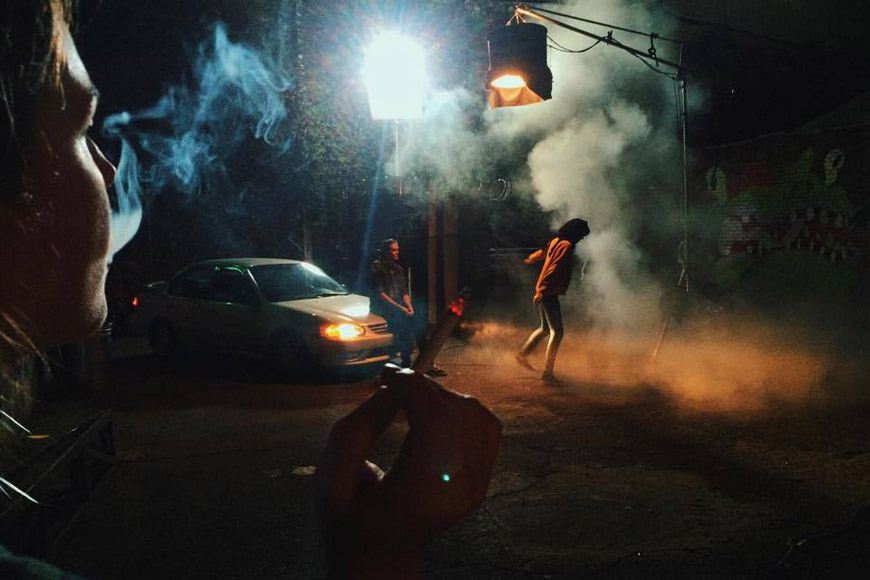
“We shot a dance scene on Hala that never made it to the final cut, but it was fun to shoot. One of the production assistants took this shot as we were filming.” – Minhal Baig
JH: I’m super excited to see Hala get made! Thanks for taking the time for this, maybe we can end this with a quote that is meaningful to you.
MB: This quote by Stanley Kubrick is brought up a lot but I love it and have found it increasingly relevant in our day and age:
“The most terrifying fact about the universe is not that it is hostile but that it is indifferent; but if we can come to terms with this indifference and accept the challenges of life within the boundaries of death — however mutable man may be able to make them — our existence as a species can have genuine meaning and fulfillment. However vast the darkness, we must supply our own light.”



 Share
Share
 Tweet
Tweet
 Email
Email
